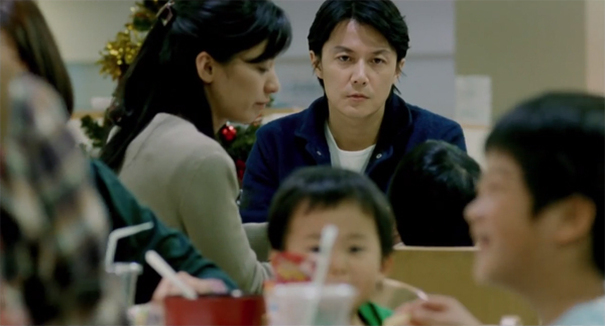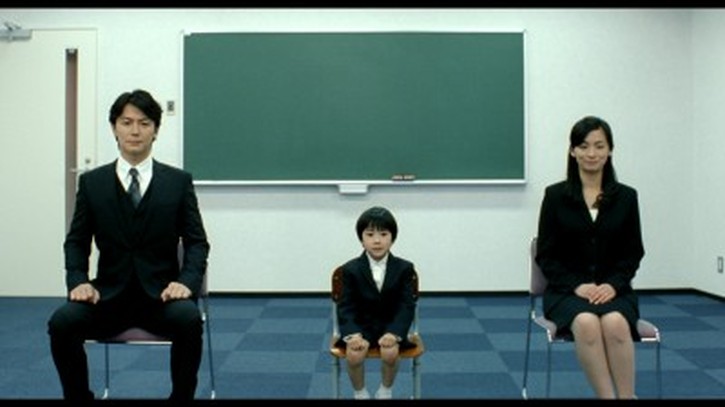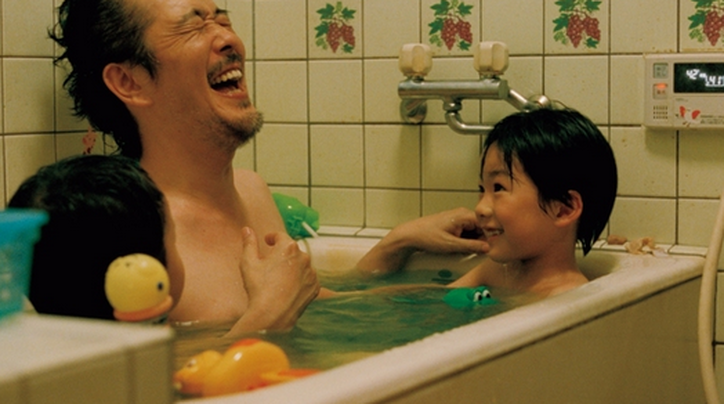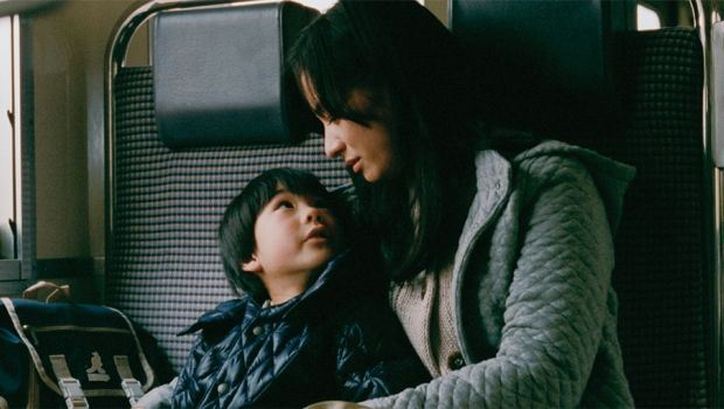 Ryota Nonomiya is a succesful Tokyo architect who works countless hours to provide for his wife, Midori and five-year-old son, Keita. When Ryota and Midori learn that Keita and another baby were switched at birth, two very different families are forced to work together in order to make an incredibly tough decision about what is best for these two children. Hirokazu Koreeda's Like Father, Like Son is a beautifully layered examination of the family unit that is tender and very moving. This is a film that really examines the definition of family, making an argument that blood is merely the scientific viewpoint, with love being what truly defines a family. While the two families stuck in this situation couldn't be anymore different, they begin to learn from each other going through this difficult process. While every character is well-dimensioned and important the true story revolves around Ryota's personal redemption as a father figure. Ryota's viewpoint on family is very representative of old japan, being a stern and demanding father figure. He want's his son to grow up strong and independent but as the film progresses he begins to realize, thanks to this peculiar situation, the error in his ways. While this ideal behind the definition of family carries the most weight in Koreeda's film , the other major theme of Like Father, Like Son revolves around this old vs. new culture, almost a nature vs. nurture struggle with Ryota coming to realize that compassion and kindness are not traits of weakness but rather strength. While I can only imagine how overly sentimental Like Father, Like Son might sound it never falls victim to manipulative emotional techniques, delivering a kindness that rings incredibly genuine. Hirokazu Koreeda's Like Father, Like Son is a tender film full of charm and wit that explores paternal and maternal nature and how it relates too and conflicts with Japanese culture. 8.5/10
0 Comments
Leave a Reply. |
AuthorLove of all things cinema brought me here. Archives
June 2023
|



 RSS Feed
RSS Feed
